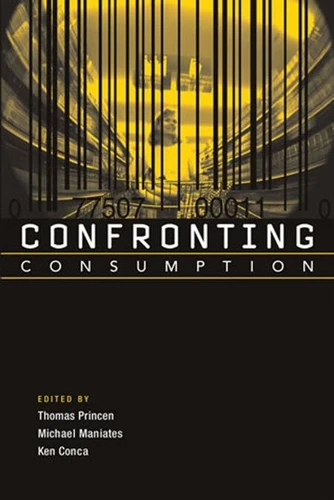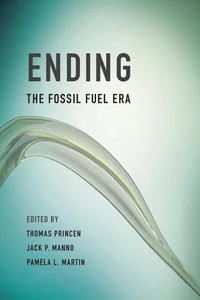Confronting Consumption
Par : , ,Formats :
Disponible dans votre compte client Decitre ou Furet du Nord dès validation de votre commande. Le format ePub protégé est :
- Compatible avec une lecture sur My Vivlio (smartphone, tablette, ordinateur)
- Compatible avec une lecture sur liseuses Vivlio
- Pour les liseuses autres que Vivlio, vous devez utiliser le logiciel Adobe Digital Edition. Non compatible avec la lecture sur les liseuses Kindle, Remarkable et Sony
- Non compatible avec un achat hors France métropolitaine
 , qui est-ce ?
, qui est-ce ?Notre partenaire de plateforme de lecture numérique où vous retrouverez l'ensemble de vos ebooks gratuitement
Pour en savoir plus sur nos ebooks, consultez notre aide en ligne ici
- Nombre de pages392
- FormatePub
- ISBN0-262-30367-1
- EAN9780262303675
- Date de parution21/06/2002
- Protection num.Adobe DRM
- Taille566 Ko
- Infos supplémentairesepub
- ÉditeurThe MIT Press
Résumé
Comforting terms such as "sustainable development" and "green production" frame environmental debate by stressing technology (not green enough), economic growth (not enough in the right places), and population (too large). Concern about consumption emerges, if at all, in benign ways; as calls for green purchasing or more recycling, or for small changes in production processes. Many academics, policymakers, and journalists, in fact, accept the economists' view of consumption as nothing less than the purpose of the economy.
Yet many people have a troubled, intuitive understanding that tinkering at the margins of production and purchasing will not put society on an ecologically and socially sustainable path. Confronting Consumption places consumption at the center of debate by conceptualizing "the consumption problem" and documenting diverse efforts to confront it. In Part 1, the book frames consumption as a problem of political and ecological economy, emphasizing core concepts of individualization and commoditization.
Part 2 develops the idea of distancing and examines transnational chains of consumption in the context of economic globalization. Part 3 describes citizen action through local currencies, home power, voluntary simplicity, "ad-busting, " and product certification. Together, the chapters propose "cautious consuming" and "better producing" as an activist and policy response to environmental problems.
The book concludes that confronting consumption must become a driving focus of contemporary environmental scholarship and activism.
Yet many people have a troubled, intuitive understanding that tinkering at the margins of production and purchasing will not put society on an ecologically and socially sustainable path. Confronting Consumption places consumption at the center of debate by conceptualizing "the consumption problem" and documenting diverse efforts to confront it. In Part 1, the book frames consumption as a problem of political and ecological economy, emphasizing core concepts of individualization and commoditization.
Part 2 develops the idea of distancing and examines transnational chains of consumption in the context of economic globalization. Part 3 describes citizen action through local currencies, home power, voluntary simplicity, "ad-busting, " and product certification. Together, the chapters propose "cautious consuming" and "better producing" as an activist and policy response to environmental problems.
The book concludes that confronting consumption must become a driving focus of contemporary environmental scholarship and activism.
Comforting terms such as "sustainable development" and "green production" frame environmental debate by stressing technology (not green enough), economic growth (not enough in the right places), and population (too large). Concern about consumption emerges, if at all, in benign ways; as calls for green purchasing or more recycling, or for small changes in production processes. Many academics, policymakers, and journalists, in fact, accept the economists' view of consumption as nothing less than the purpose of the economy.
Yet many people have a troubled, intuitive understanding that tinkering at the margins of production and purchasing will not put society on an ecologically and socially sustainable path. Confronting Consumption places consumption at the center of debate by conceptualizing "the consumption problem" and documenting diverse efforts to confront it. In Part 1, the book frames consumption as a problem of political and ecological economy, emphasizing core concepts of individualization and commoditization.
Part 2 develops the idea of distancing and examines transnational chains of consumption in the context of economic globalization. Part 3 describes citizen action through local currencies, home power, voluntary simplicity, "ad-busting, " and product certification. Together, the chapters propose "cautious consuming" and "better producing" as an activist and policy response to environmental problems.
The book concludes that confronting consumption must become a driving focus of contemporary environmental scholarship and activism.
Yet many people have a troubled, intuitive understanding that tinkering at the margins of production and purchasing will not put society on an ecologically and socially sustainable path. Confronting Consumption places consumption at the center of debate by conceptualizing "the consumption problem" and documenting diverse efforts to confront it. In Part 1, the book frames consumption as a problem of political and ecological economy, emphasizing core concepts of individualization and commoditization.
Part 2 develops the idea of distancing and examines transnational chains of consumption in the context of economic globalization. Part 3 describes citizen action through local currencies, home power, voluntary simplicity, "ad-busting, " and product certification. Together, the chapters propose "cautious consuming" and "better producing" as an activist and policy response to environmental problems.
The book concludes that confronting consumption must become a driving focus of contemporary environmental scholarship and activism.






